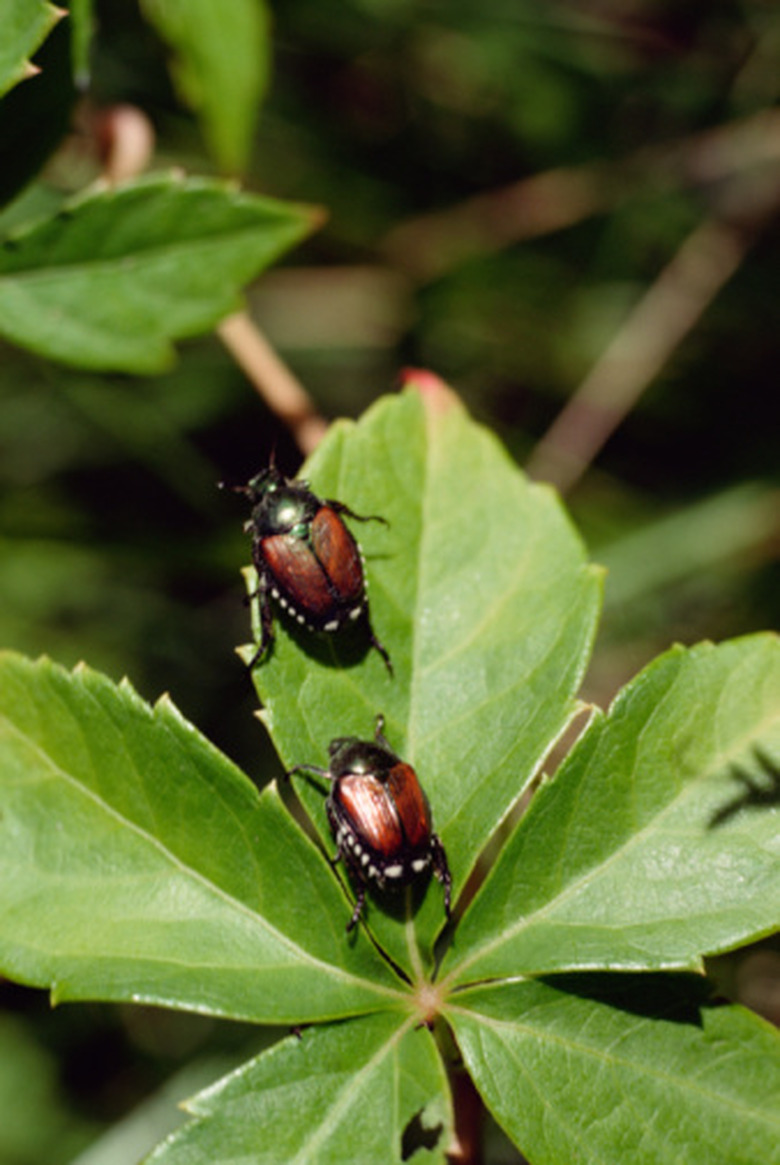Home Remedy For How To Kill Japanese Beetles
Things Needed
- Garden gloves
- Bucket
- Liquid dish-washing soap
- Sugar
- 1 gallon milk jug
- 1 package yeast
- Banana
- Castor bean plant
- Milky spore
Tip
Dislodge Japanese beetles from plants by spraying them with a strong stream of water from a garden hose.
Warning
Plant castor beans away from children and pets because they are poisonous.
Japanese beetles can destroy plants and crops in your garden. The beetles leave behind eggs that hatch into grubs. The grubs live in the soil and ruin turf on the ground. Killing the Japanese beetles with chemicals may harm the environment, and some commercial traps attract more beetles to the garden. Killing the entire population of Japanese beetles that thrives in your garden may be an impossible feat, but you can focus on controlling the population to protect your plants from extensive damages.
Step 1
Wear gloves to protect your hands from the Japanese beetles. Pick the beetles off the plants and place them into a bucket of soapy water. The beetles will drown in the water and then you can dispose of them.
- Japanese beetles can destroy plants and crops in your garden.
- The beetles will drown in the water and then you can dispose of them.
Step 2
Create a bait trap by combining 1/4 cup of sugar with 1 cup of water in a 1-gallon milk jug. Pour in one package of yeast and one smashed banana. Sit the milk jug in your garden 1 inch above the ground with the lid removed to trap the Japanese beetles. Replace the bait trap as needed.
Step 3
Grow castor bean plants to poison the Japanese beetles. Plant the castor bean in the areas where you notice heavy populations of Japanese beetles.
Step 4
Spread milky spore around the soil where you notice the beetles and their grubs. The milk spore will infect the grubs and kill them.
- Create a bait trap by combining 1/4 cup of sugar with 1 cup of water in a 1-gallon milk jug.
- Plant the castor bean in the areas where you notice heavy populations of Japanese beetles.
Step 5
Avoid watering the lawn as much as possible. Allowing the lawn to dry out will deprive Japanese beetle eggs of water, which will kill them.
